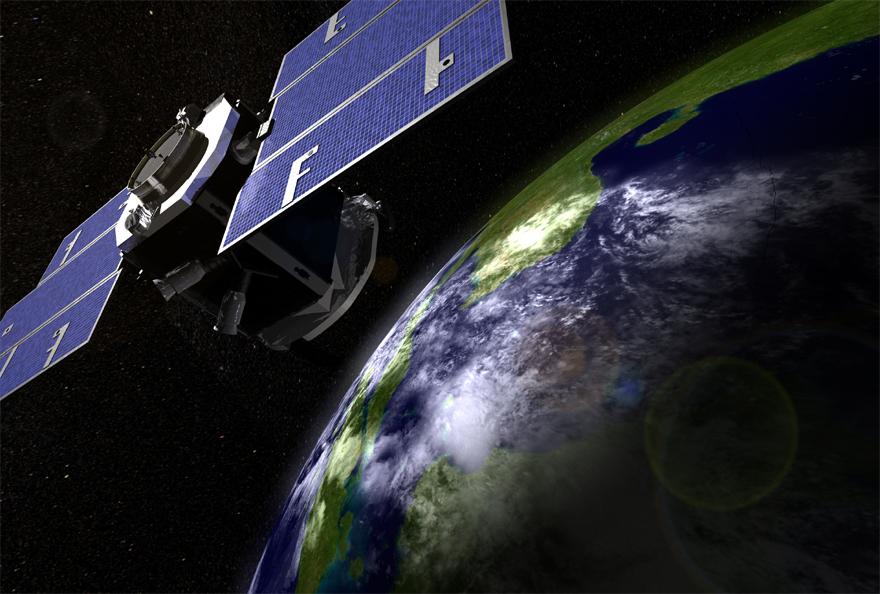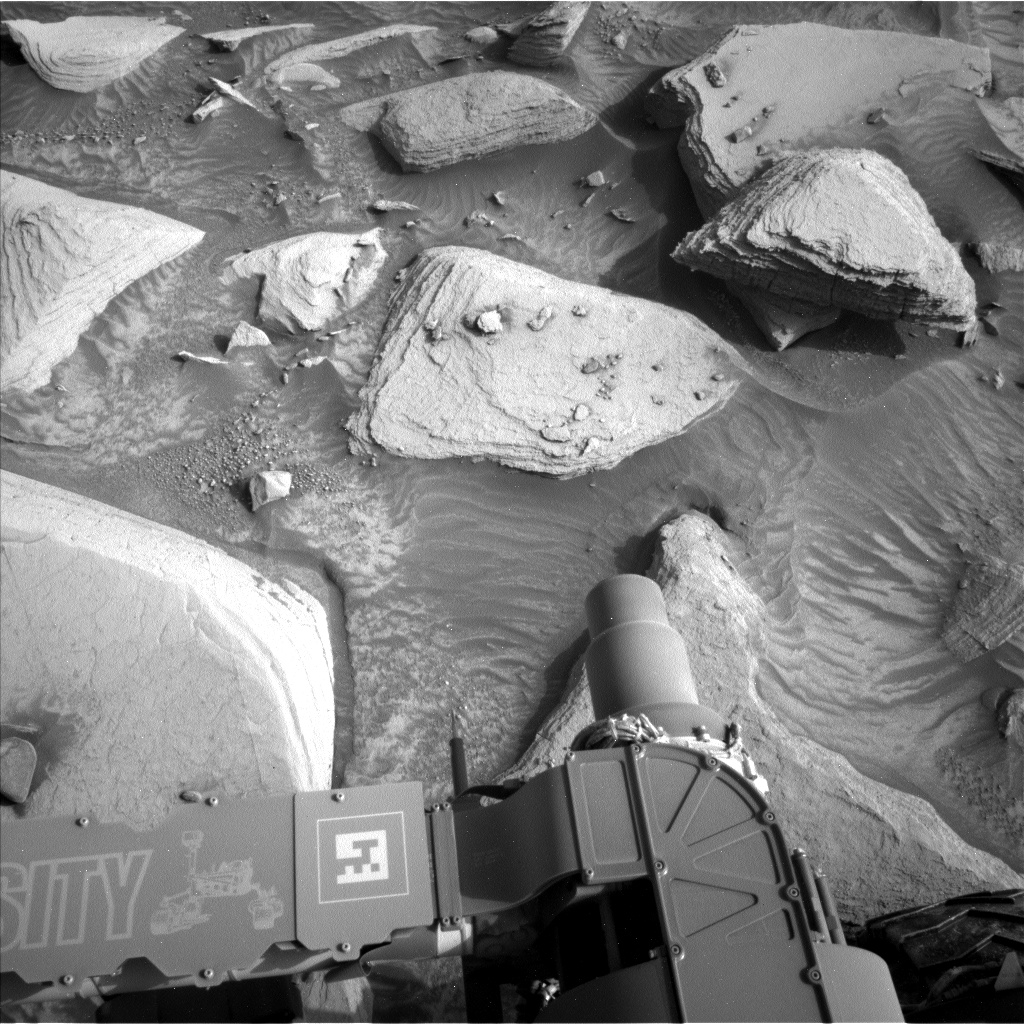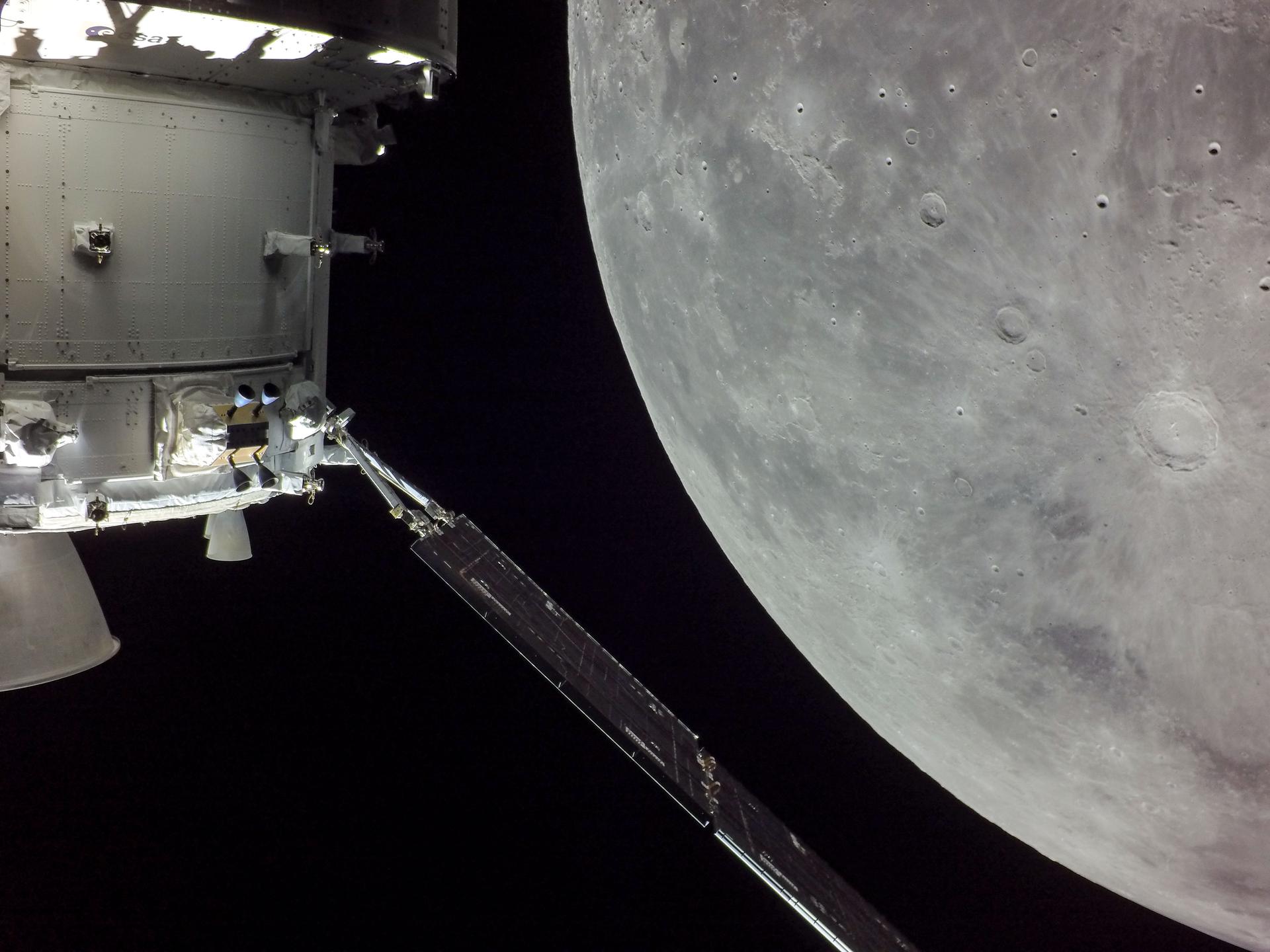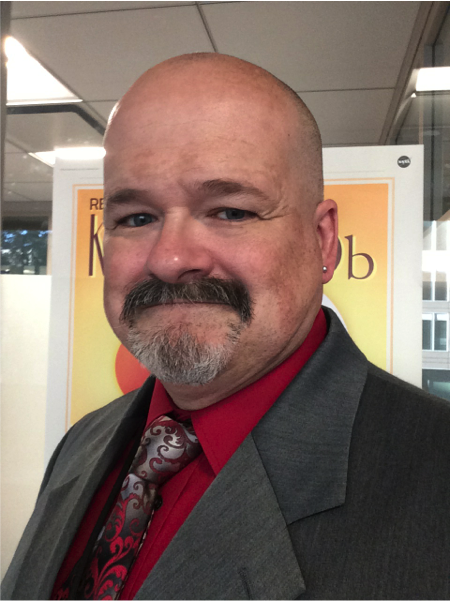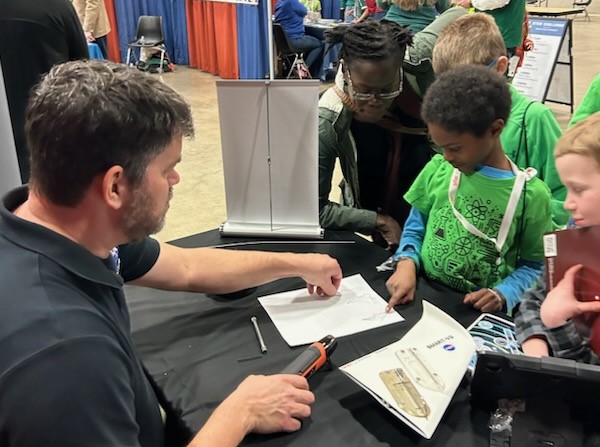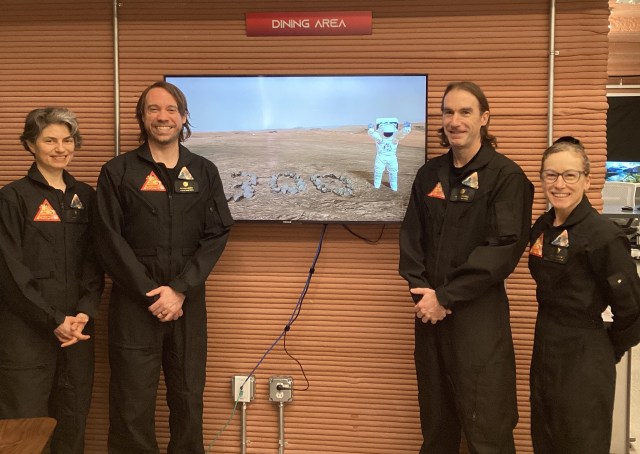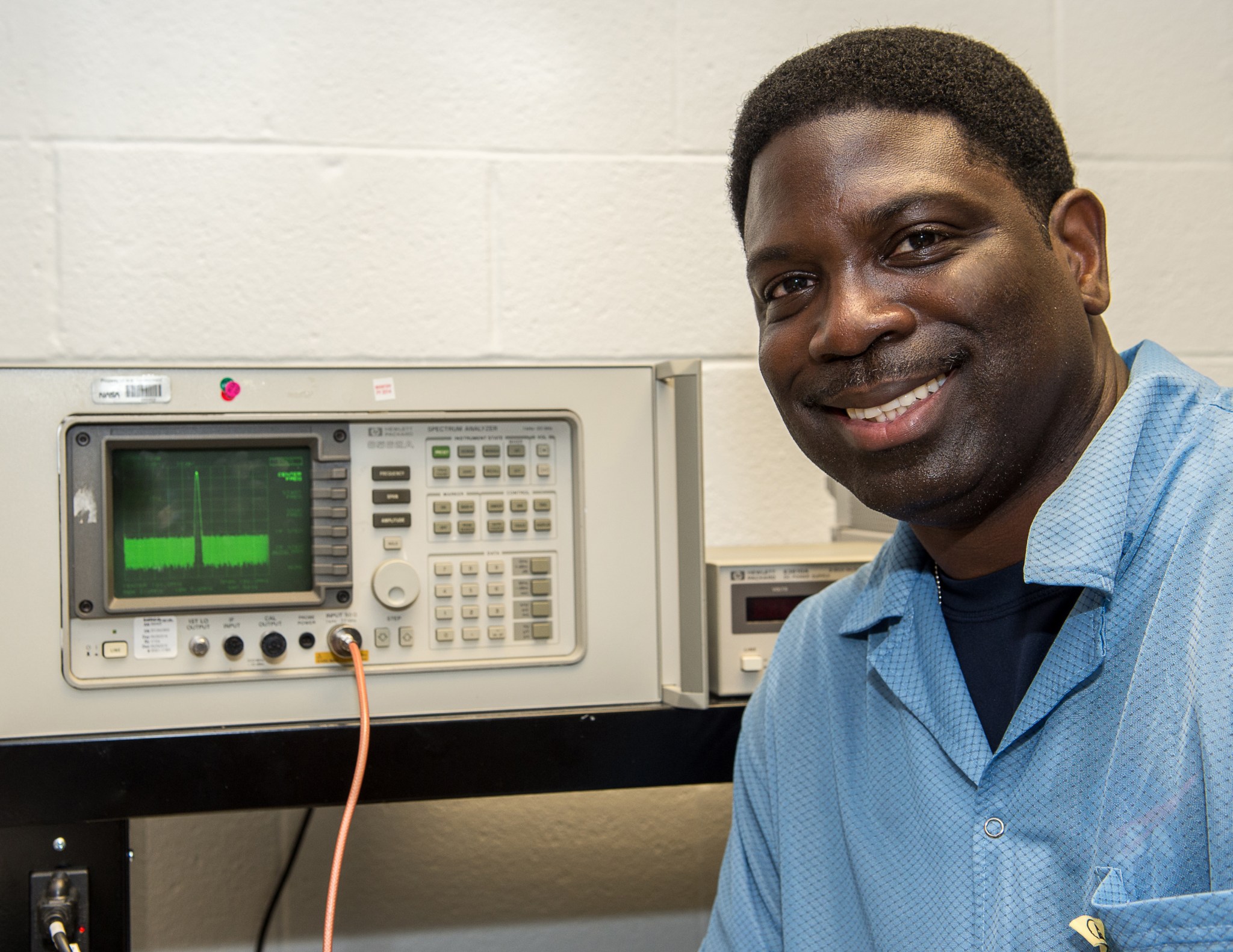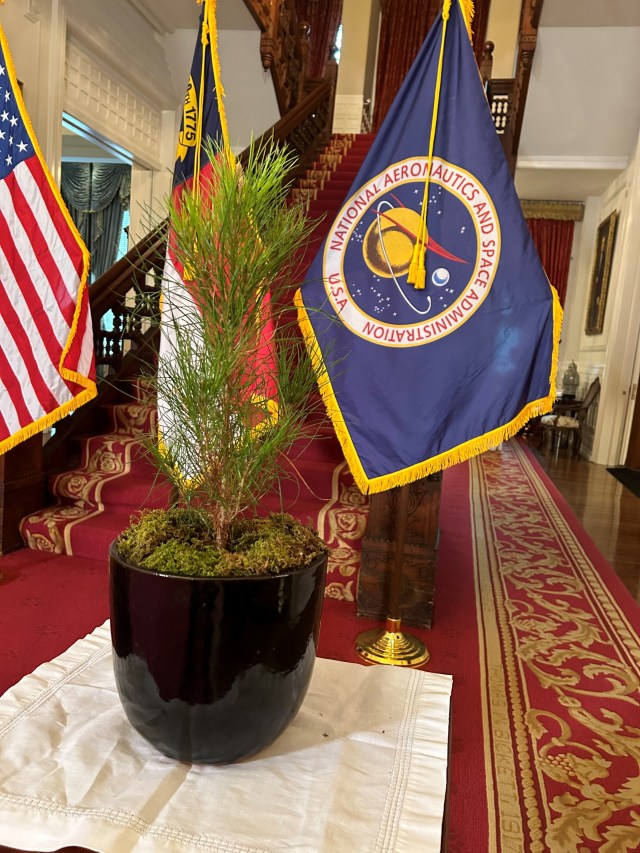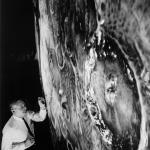Name: Eric Harris
Title: Electrical Engineer
Organization: Code 566, Telecommunication Networks & Technology Branch
Eric Harris was built for engineering, and for motivating students and emphasizing leadership.
What does satellite communications at NASA Goddard involve?
Goddard manages the Space Network and the Near Earth Network in the Exploration and Space Communications Projects Division.
These two networks utilize a variety of ground stations and a constellation of geostationary satellites to maintain constant communication with spacecraft orbiting Earth.
What is a “regular” day like for you?
Most of my time is spent within telecommunication networks technology designing, building, testing and developing RF [radio-frequency] hardware in Code 566.
I’m currently on detail in the Safety and Mission Assurance Directorate, where I collaborate with peers in order to update and improve Goddard’s ESD [electrostatic discharge] control program.
Why engineering and technology?
I’m curious. I like to know how the world works. I believe knowledge is power. It seems like engineering is inline with my personality to want to make something, to want to do something.
Technology helps mankind develop and evolve and improve. It enables mankind to be in control of its destiny. Satellite communications is awesome – the ability to transmit information thousands of miles away through space to a receiver is amazing.
What challenges did you face to get where you are today?
The academic engineering program I went through was very challenging and difficult, but I made up my mind to do it and I pushed through.
I’ve always been pretty independent, and once I put my mind to something, I’d do it, regardless of whether or not there were mentors that looked like me.
What does it take to be a good leader?
It takes a combination of vision, experience and interpersonal skills. Such a person can see the big picture, communicate goals and objectives, establish a game plan and inspire people to follow.
A leader must also have solid managerial skills to keep a project successfully on track from start to finish.
As a leader and manager, how do you inspire?
I try to inspire people through good, universally respected character. I lead through honesty and integrity. I don’t compete in a negative way. I work to be a team-player; to be team-focused.
When people see that you are genuine and working for the team, they want to listen to you, they want to follow you and to work with you. If I’m helping my team win, I’m also going to win. I want to share my knowledge because it’s good to see others excel.
What motivates you in your career?
In general, I love seeing people work well together to successfully complete tasks and achieve a goal. I want to help facilitate this process. One of my dreams would be to help lead and manage a flight project to help NASA achieve a science objective.
I’m also motivated by patriotism, to serve my country and to inspire or motivate children. Everything I do is for the American people.
As a NASA employee, there is a huge responsibility to contribute and share. You have to share what you know to help others, and to be glad when they succeed.
I also want to expose the younger generation to engineering and to let them know that they can be a part of it. I want African-American kids to know they can do it too.
I want someone younger than me to take my baton where I left off and run further than me. You take that baton and you run; the next runner will take everything even further.
How have you worked to encourage students?
I’ve motivated children through my work with the National Society of Black Engineers [NSBE]. I’ve had the chance to help students with technology projects involving rockets, building a small radio and more.
For me, it was just my high school teacher mentioning engineering that made me interested in the field. Sometimes you just need to show up and share – to point students to things they may have never seen. Telling them about your life and showing them that option can plant a seed.
Any advice to those interested in a STEM career?
- Be inquisitive and turn your technical passion into a hobby.
- Build and create technology.
- Keep mentors in your life.
- Never stop learning.
- Do STEM because you love STEM, not just because you can make money with it, or because of others opinions.
- Work hard, keep improving, strive to be intellectual and competitive… success will follow.
By Elizabeth M. Jarrell
NASA’s Goddard Space Flight Center, Greenbelt, Md.

Conversations With Goddard is a collection of Q&A profiles highlighting the breadth and depth of NASA’s Goddard Space Flight Center’s talented and diverse workforce. The Conversations have been published twice a month on average since May 2011. Read past editions on Goddard’s “Our People” webpage.


